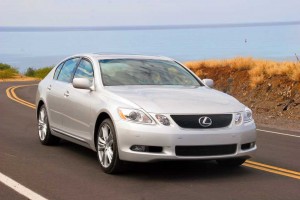What did they know and when did they know it? It’s the sort of question that can bring down a president – or raise some serious concerns about an already troubled automaker. Like Toyota, where a spokesman acknowledges the company knew about the problem with stalling engines in its Lexus luxury line for at least two years.
The automaker even took steps to replace an apparently defective spring linked to the problem, but ultimately waited until the beginning of July 2010 to order a recall. In all, 270,000 vehicles sold worldwide are involved in the action, including 138,000 sold under the Lexus brand, here in the U.S.
(Click Here for the details on the Lexus recall.)
The delay in ordering a recall threatens to raise new questions about Toyota’s approach to quality and safety, even as the embattled automaker has been taking steps to calm American consumers in the wake of an ongoing safety scandal that reached its high point, last February, when Toyota Motor Co. CEO Akio Toyoda testified at a Congressional investigation. Just last month, Toyota was forced to halt sales of the Lexus HS250h hybrid due to a potential fuel leak problem. And the maker also saw its standing in a widely-quoted quality survey drop precipitously.
The latest recall – which will be formally filed with the National Highway Traffic Safety Administration this week – stems from faulty engine valves that were contaminated by what the maker last week said was “foreign material.” Tokyo-based Toyota spokesman Hideaki Homma tells the Associated Press the company was aware of the issue and switched to a replacement spring by August of 2008.
With the new part, he added, “the problem won’t happen at all, even if tiny particles (of contaminant) enter during manufacturing.”
The fix apparently has worked, as Toyota claims it has not received word of engine stalling problems on vehicles produced after August 2008. But what it originally saw as an “extremely rare” issue with earlier Lexus models was apparently more serious, and complaints have continued to mount, forcing it to issue the latest recall order.
The move affects 2006, 2007 and 2008 Lexus GS, IS and LS models sold in the U.S. and other markets equipped with the brand’s 3.5-liter V6 or 4.6 and 5.0-liter V8s. In Japan, the Toyota Crown sedan is also on the recall list.
In years past, Toyota’s insistence that it was not aware of the extent of the problem might have ended the discussion, but not at a time when the maker’s long-standing reputation for quality and customer service has been sorely tarnished.
Earlier this year, in fact, the maker decided not the challenge a record $16.4 million fine levied by the NHTSA for failing to report problems with sticky accelerator pedals in a timely manner. That defect led to one of two major recalls since October 2009 for so-called “unintended acceleration,” an issue now linked to scores of deaths and hundreds of injuries.
Other recalls have targeted a variety of issues with Toyota vehicles, including excess corrosion that could lead to parts falling off the maker’s minivans and pickups.
Last month, government crash tests revealed that the dedicated Lexus hybrid, the HS250h, could experience fuel leakage after a rear-end crash. Toyota’s luxury arm has ordered a stop sale of that model while it comes up with a fix. A recall will follow.
Adding insult to the ongoing injuries, Toyota plunged from sixth to 21st position in the latest Initial Quality Survey. The annual study, by California’s market research firm J.D. Power and Associates, measures “problems” experienced by motorists during the first three months they own a new vehicle. The Lexus brand retained its position in the IQS Top Five, but mounting concerns about safety and quality could tarnish the brand going forward, analysts warn.
Following his testimony on Capitol Hill, Toyota CEO Toyoda ordered the creation of a new office designed to speed up efforts to fix problems — and to give more control over recalls and related actions to the maker’s American operations.

